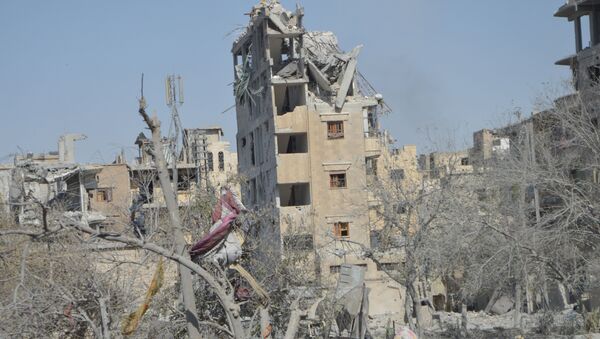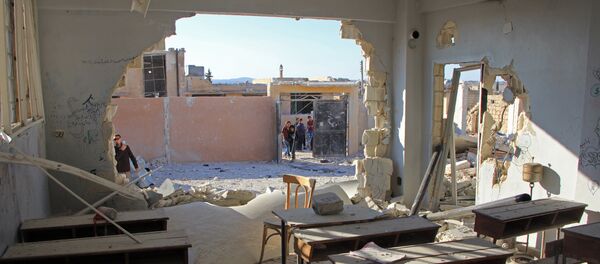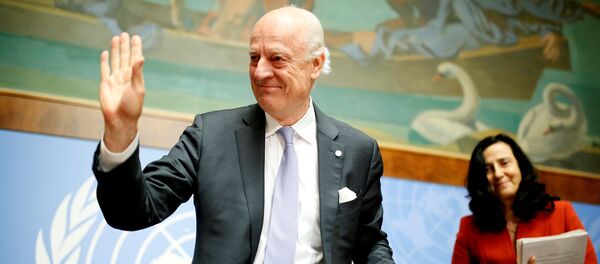Daesh has left landmines all over the city: in piles of rubble, inside refrigerators and wherever else they can fit them. The UN estimated that between 50 and 70 Syrians were being wounded or killed a week due to the intense mining of the city, and Human Rights Watch (HRW) claims that they've documented 491 injuries from mine blasts since the city's liberation — including 157 wounded children.
"The defeat of [Daesh] in Raqqa was heralded as a global international victory, but international support for dealing with the aftermath of the battle, and notably the deadly legacy of mines, has not risen to the challenge," HRW director of terrorism and counterterrorism Nadim Houry said in a Monday statement.
"Visiting Raqqa, one is struck by the discrepancy between the international support to militarily defeat [Daesh] and the very timid support to deal with the aftermath," Houry said. "If the situation does not change, the [Daesh] legacy of landmines will continue to kill for years."
"The number of unexploded ordnance in Raqqa is something that we have never seen before. It's extreme," added Panos Moumtzis, the UN regional humanitarian coordinator for Syria.
In December, the SDF announced that they had de-mined half of the city, focusing on critical infrastructure. "The hospitals, public institutions, schools, power stations and bakeries are all de-mined," SDF official Lokman Khalil told AFP. "Raqqa's a big city. There's a huge number of mines and it'll take time."
The Raqqa Civil Council (RCC) has been handed control of the city and have hired de-mining firms to also clear private residences of mines, but residents have complained that the service is slow and overpriced.
"Just to give you a point of comparison: it's the number [of mine-related injuries and deaths] that takes place in Afghanistan in a year," Moumtzis said. The deminers will ask as much as $100 to search and clear homes for mines — no small fee for Syrians who might have spent years displaced.
"It's becoming a lucrative business. The officials are ignoring it and we don't have the means," relayed resident Hamed Saleh, 28, who said he can't access his home because it's filled with mines and he can't afford to have them removed. "At any moment, even if a cat is just passing by, a bomb could go off. It's terrifying."
Against warnings from the SDF, UN and other human rights groups, over 60,000 residents have returned to Raqqa. Many of them have been living in refugee camps for years, since Daesh took control of the city in 2013.




